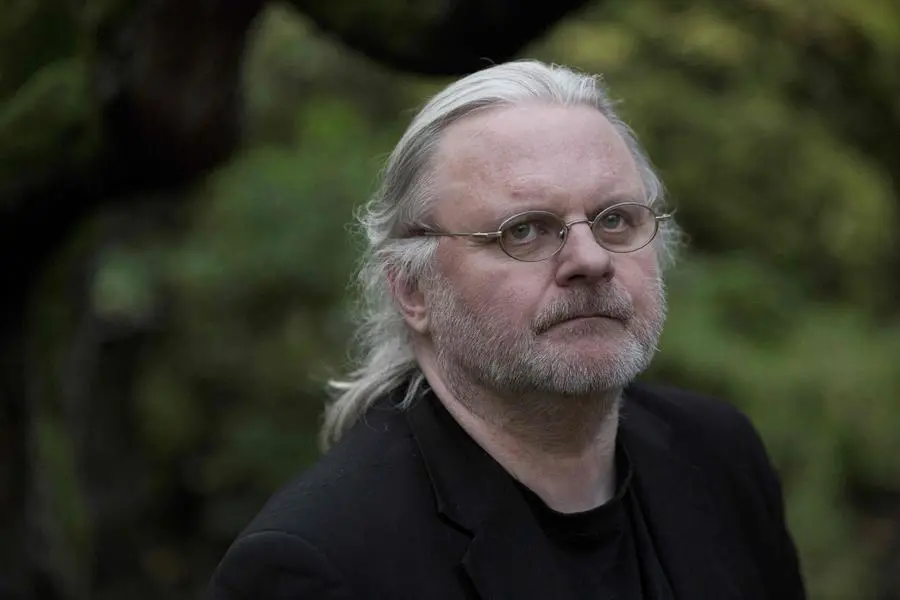PHOTO
The Swedish Academy on Thursday awarded the Nobel Literature Prize to Norway's Jon Fosse, whose plays are among the most widely staged of any contemporary playwright in the world.
He was honoured "for his innovative plays and prose which give voice to the unsayable", the Swedish Academy said.
"I am overwhelmed and grateful. I see this as an award to the literature that first and foremost aims to be literature, without other considerations," Fosse said in a statement immediately after the announcement.
The chairman of the Nobel committee, Anders Olsson, told reporters Fosse had "come to be regarded as an innovator" through his "ability to evoke ... loss of orientation, and how this paradoxically can provide access to a deeper experience, close to divinity".
Fosse's writing is defined more by form than content, where what is not said is often more revealing than what is.
Often compared to Samuel Beckett, his work is minimalistic, relying on simple language which delivers its message through rhythm, melody and silence.
His major works include "Boathouse" (1989), which was well-received by critics, and "Melancholy" I and II (1995-1996).
Fosse, 64, had featured widely in Nobel speculation for several years.
"I've just spoken to Jon Fosse on the phone. It's not always that I'm believed when I call people up this way but he was prepared to trust me," Mats Malm, the permanent secretary of the Swedish Academy, told reporters.
- 'Playwriting was 'made for me' -
"His immense oeuvre written in Norwegian Nynorsk (one of Norway's written forms of languages) and spanning a variety of genres consists of a wealth of plays, novels, poetry collections, essays, children's books and translations", the jury said.
"While he is today one of the most widely performed playwrights in the world, he has also become increasingly recognised for his prose."
Fosse grew up in a family which followed a strict form of Lutheranism and rebelled by playing in a band and declaring himself an atheist.
He ended up converting to Catholicism in 2013.
After studying literature, he made his debut in 1983 with the novel "Red, Black" which moves back and forth in time and between perspectives.
His latest book, "Septology", a semi-autobiographical magnum opus -- seven parts spread across three volumes about a man who meets another version of himself -- runs to 1,250 pages without a single full stop.
The third volume was shortlisted for the 2022 International Booker Prize.
Struggling to make ends meet as an author in the early 1990s, Fosse was asked to write the start of a play.
"It was the first time I had ever tried my hand at this kind of work, and it was the biggest surprise of my life as a writer.
"I knew, I felt, that this kind of writing was made for me," he once said in an interview with a French theatre website.
He enjoyed the form so much he wrote the entire play, entitled "Someone is Going to Come".
He went on to win international acclaim for his next play, "And We'll Never be Parted", in 1994.
- 'I write about humanity' -
His work has been translated into around 50 languages.
According to his Norwegian publisher, Samlaget, his plays have been staged more than a thousand times around the world.
"You don't read my books for the plots," he told the Financial Times in 2018.
"I don't write about characters in the traditional sense of the word. I write about humanity," Fosse told French newspaper Le Monde in 2003.
The Nobel Prize comes with a medal and a prize sum of 11 million Swedish kronor (about $1 million).
Last year, the award went to French feminist icon Annie Ernaux, known for her deceptively simple novels drawing on personal experience of class and gender.
The Swedish Academy has long been criticised for the over-representation of Western white male authors among its picks.
The Academy has undergone major reforms since a devastating #MeToo scandal in 2018, vowing a more global and gender-equal literature prize.
Since the scandal, it has honoured three women -- Annie Ernaux, US poet Louise Gluck and Poland's Olga Tokarczuk -- and three men -- Austrian author Peter Handke, Tanzanian writer Abdulrazak Gurnah and Fosse.
Fosse will receive the Nobel from King Carl XVI Gustaf at a formal ceremony in Stockholm on December 10, the anniversary of the 1896 death of scientist Alfred Nobel.





















